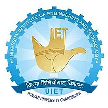Background
India proposes to deploy 1,00,000 MW of solar energy by 2019. To achieve this target and successfully operate and manage these power plants, it is critical to build qualified/skilled manpower in solar energy science and technologies. A study conducted by CII-Green Business Centre for Ministry of New and Renewable Energy (MNRE) in 2010, estimated that 6.5 lac solar energy professionals will need to be employed. A recent study by Bridge to India estimated a need for 3.5 lac solar energy professionals for only the solar rooftop sub-sector.
Overview of SETNET
The National Institute of Solar Energy (NISE), an autonomous center of excellence of Ministry of New and Renewable Energy (MNRE), Government of India has identified training to solar energy professionals as its key focus area. Towards this end, it has conceptualized the Solar Energy Training Network (SETNET) in collaboration with the Indo-U.S. bilateral Partnership to Accelerate Clean Energy Deployment Technical Assistance (PACE-D TA) Program. SETNET will provide MNRE with a structured platform for technical and business training in the solar space.
Specifically, the objective of SETNET is to ensure the availability of skilled manpower to meet the solar deployment target for 2019. SETNET guiding framework includes
• Prioritization of training needs with concurrent industry interface
• Standardized curriculum and content delivered by accredited trainers
• Training delivery through a range of partner organizations
SETNET Courses
SETNET will deliver various technical and business training courses.
• Aryabhatta Certificate will be one of the two flagship courses of SETNET. It will be open only to engineers with some experience in the solar sector. The aim of this course is to enable the participant to effectively plan, design and operate solar power systems of a range of scales from rooftop collectors & power plants to ultra- megawatt.
The curriculum thus will focus on both technical and business (policy, regulation & finance) aspects. The training will be delivered through a mix of online learning, classroom interactions, and study tour and laboratory experience. Classroom interaction, laboratory
experiences and study tours will be organized at the SETNET learning & knowledge hub that will be established at the Aryabhatta partner’s campus. All participants will be expected to take an online test to become eligible for the certificate.
About 1,000 Aryabhatta certificates are expected to be given out each year for a period of next 5 years to fee paying participants.
• Suryan IOM Professional is second flagship course of SETNET. At the end of the program, the participants would be able to install, operate and maintain (IOM) small-scale solar power plants and related equipment. Specialized trainings will be provided for household applications (lanterns, home-lighting systems and cookers); rooftop, street-light & charging stations; micro-grids; ground-mounted; solar water heater, inverters and batteries, performance assessment of panels, etc.
Classroom interaction, laboratory experiences and study tours will be organized at the SETNET learning & knowledge hub which will be established at the Suryan partner’s campus. It is expected that 400,000 Suryans will be trained by 2019. Training will include a mix of classroom interaction and laboratory experience.
• Bhaskar Certificate, business programs, will largely consist of specialized 1-3 day courses on different business aspects as Policy & Regulation, Business Models, Finance, Appraising Solar Projects, Supply Chain Management, Solar Entrepreneurship Development, Micro-finance amongst others.
The training will be delivered through classroom interactions to fee paying participants. About 2,000 professionals are expected to be trained each year for the next 5 years.
• Konark Graduate Engineer course will be a specialized course designed to train fresh engineers who seek employment as solar engineers. The course will be open to engineers or students with an equivalent degree from any stream. The course will enable the participants to effectively work on design, establishment and management of solar power projects. On successful completion of their course, the Konark graduate engineers will be well versed with basic electronics engineering, solar energy technologies, basic power plant O&M and will be able to design and manage of solar power plants
The curriculum thus will focus on both technical (design and implementation) and management (O&M, contracting, site challenges and solutions) aspects. These will be short
term training programs to be conducted on classroom basis. About 10,000 Konark professionals are expected to be trained for a period of next 5 years.
Technical support from NISE
• National Institute of Solar Energy (NISE) will prepare a standardized curriculum and content for the courses that will be passed on to the SETNET partners to conduct the training programs.
• NISE will also support the partners by conducting Training of Trainers Workshop for training the Trainers of various partner organisations.
• NISE will do regular monitoring for the quality of training conducted by the partner organisations.
